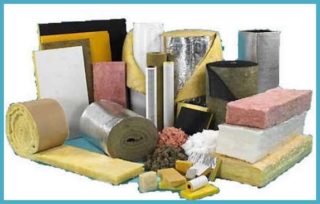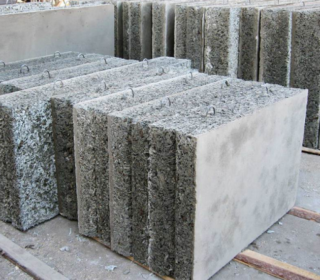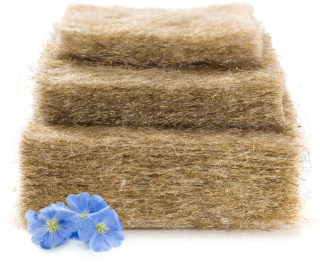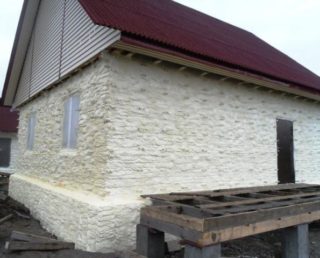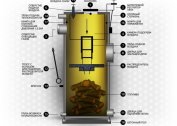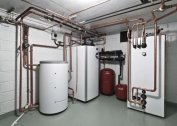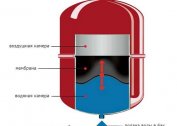Energy prices are rising every year, and not everyone has the opportunity to constantly heat their homes with energy sources. Therefore, it is necessary to insulate the floor, walls and roof of the house or bath. If the thermal insulation used in the building is not environmentally friendly, it is recommended to consider the possibility of using eco-insulation from recycled materials when replacing it or when constructing a new building.
Criteria for choosing a thermal insulation material
The operational properties of thermal insulation are more important than the method of its production, so it is important to consider when choosing:
- moisture resistance;
- heat protection;
- steam throughput;
- fire safety;
- environmental friendliness.
The optimal combination of these properties with the total purchase and installation costs is the right product. It is necessary to take into account the purpose of the insulated room and the material from which it is built, to identify the priority properties of the insulation.
Ecocotton paper from waste paper
Environmentally friendly insulation, which is made from all types of waste paper (paper, cardboard, corrugated cardboard, drywall) with the addition of boric acid and borax. The resulting material has strength, fire resistance, high rates of heat, moisture, and sound insulation. The composition includes an antiseptic, which prevents the occurrence of mold.
The ecowool layer accumulates moisture over time and this increases its thermal conductivity. Therefore, when installing insulation from ecowool, the possibility of ventilation should be provided so that moisture does not linger inside.
The material has the ability to settle, therefore it must be applied with a margin of volume. The installation of ecowool insulation requires professional skills and equipment, as the material is supplied in the form of a mass that is blown by the compressor onto a dry surface or onto adhesive.
Manufacturers of ecowool: Ecovilla (Finland), Greenfiber (USA), Ecowata Extra LLC (Russia), Equator (Russia). The choice of a domestic producer of ecowool is preferable because of the low price.
Eco-friendly cotton and linen
90% cotton insulation consists of recycled old jeans. Absolutely safe material for human health. It is easy to mount it yourself without the use of protective equipment. It has excellent sound insulation. For fire safety, cotton is treated with flame retardants. It is made in the form of rolls or plates. In Russia, cotton eco-insulation for the home is not particularly popular, but it can be ordered via the Internet.
Environmentally friendly insulation for houses made of linen in slabs is a plant material. Biologically pure after processing, non-toxic, has high heat capacity and soundproofness. But in order to increase the service life and make it non-combustible, it is necessary to add appropriate chemicals to the composition - polyester fibers and flame retardants, which reduces its environmental friendliness.
The price of flax insulation is the highest compared to others, since flax is a natural material.
During installation, it should be borne in mind that flax has high caking properties, so the plates must be quickly installed in place until the material has deteriorated.
In Russia, linen insulation is represented by the Ecoteplin brand.
Fiberglass insulation
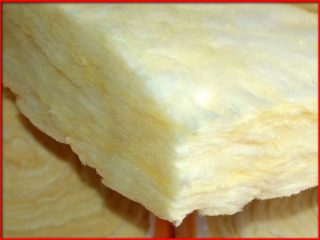
Fiberglass is the best eco-friendly insulation for a wooden house. The quality of fiberglass insulation and its environmental safety directly depends on the price - the higher it is, the safer the material. Manufacturers of cheap glass wool use formaldehydes and other substances in the production that can harm a person during the installation and operation of the insulation.
High-quality glass wool lasts a long time, does not sit, does not burn, has low thermal conductivity and is not interested in rodents and insects.
Fiberglass thermal insulation is supplied in plates and rolls, and protective equipment must be used during installation. Manufacturers of eco-friendly fiberglass insulation: URSA, Knauf and Isover, the content of hazardous impurities is minimized in the products of these brands.
Polyurethane foam insulation
It is made from rigid polyurethane foam and has a cellular internal structure. During operation, it does not emit harmful substances, long-lasting has the lowest moisture and thermal conductivity.
Universal material can be supplied with plates that are easy to cut to the desired shape, or applied in the form of foam directly onto the insulated surface. Water acts as a foaming agent.
PU foam insulation can even seal the room too much, causing moisture to accumulate from the inside, causing mold to form. Also a disadvantage is toxicity during combustion. Manufacturers compensate for this by adding flame retardants, the content of which can reach up to a quarter of the mass in the finished product. Manufacturers: Izolan, MAXPOL, POLYNOR, Teplis.
When choosing a material for warming a house, one should proceed from its characteristics. If the task is to build just an “eco-house” in which each element contributes to the protection of the environment, you should choose an environmentally friendly insulation made of cotton, linen or ecowool made from cellulose. In Russia, ecowool is the most accessible.
Ecology fans may find fiberglass and polyurethane foam unsuitable for building eco-housing, but their functional characteristics are high enough to pay attention to these materials when warming a balcony, frame house or other residential premises.
